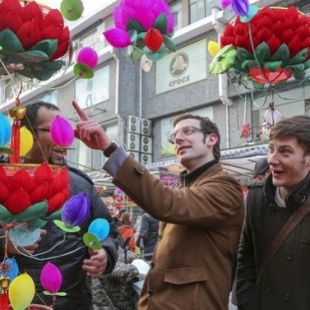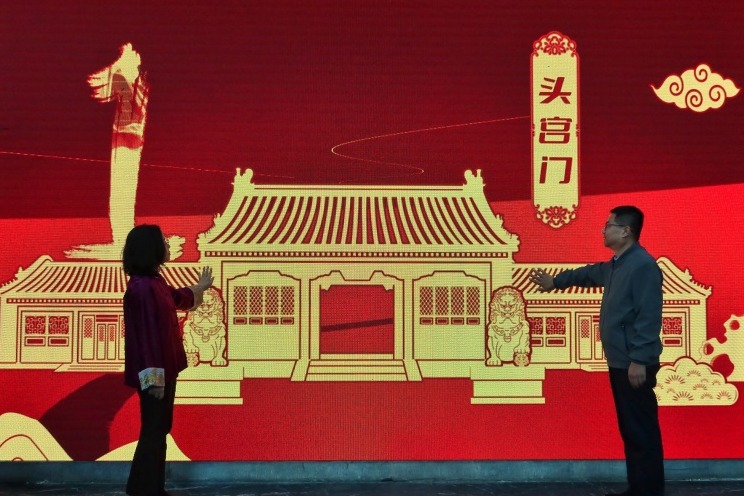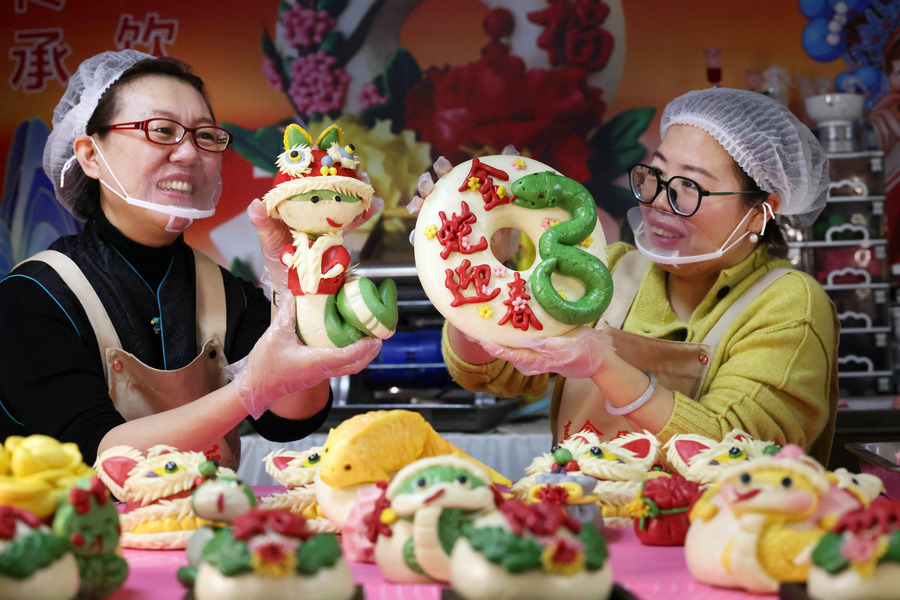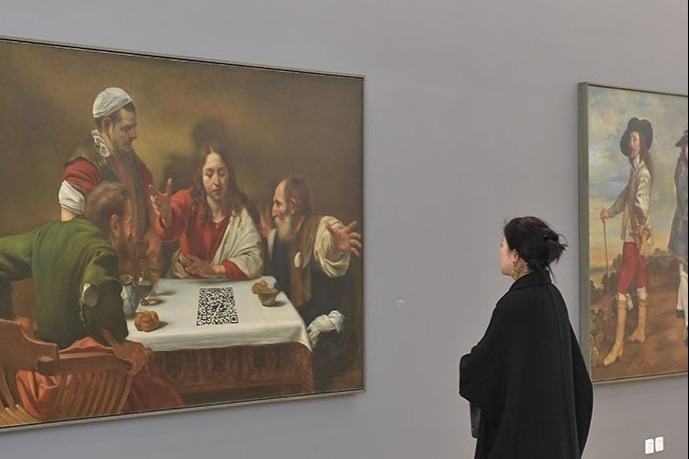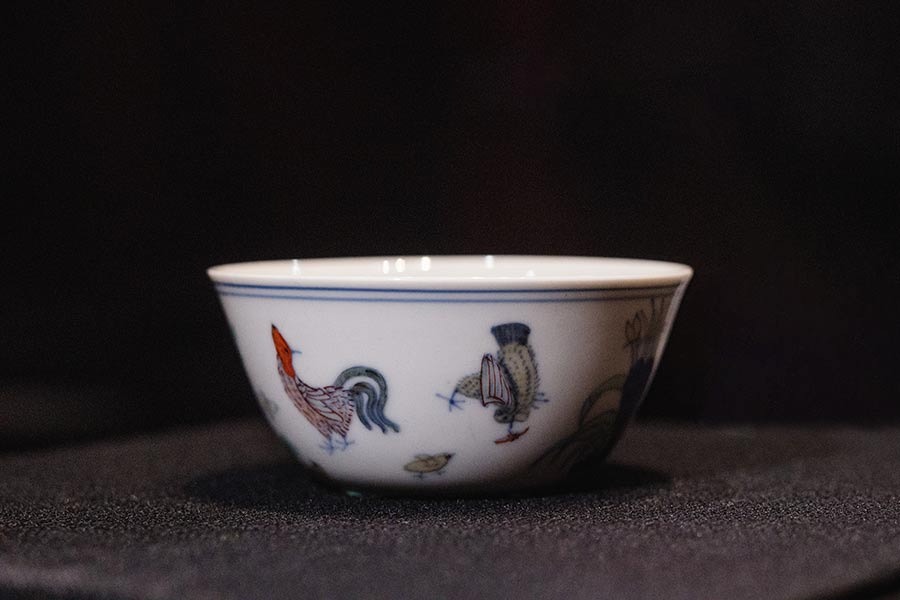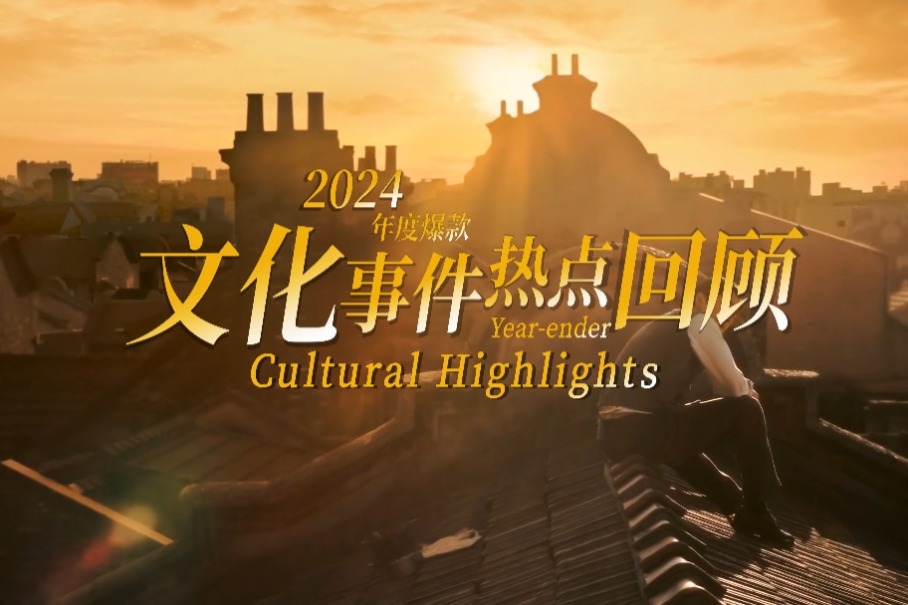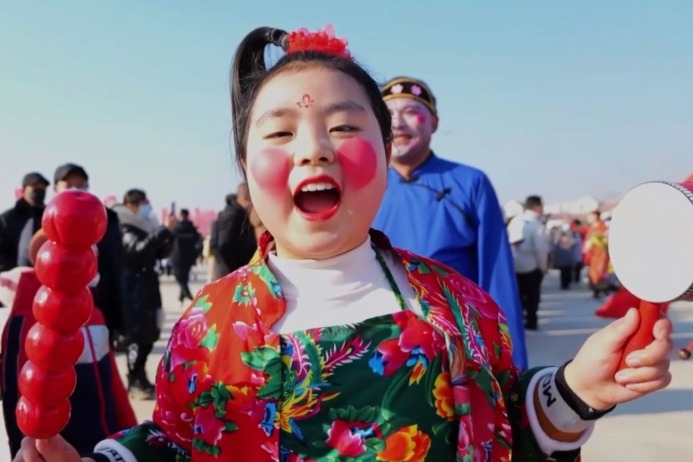German entrepreneur confident of China business success

The past Spring Festival holiday has been a hectic yet sanguine one for Jennifer Kerstin Zhang, from the southern German city of Wurzburg.
"We cleaned the house in advance, prepared hearty delicacies, watched the Spring Festival gala, and made dumplings together to usher in the Year of the Rabbit," she says.
During the holiday, Kerstin also visited a temple fair in Beijing's Badachu Park for the first time. "I'm overwhelmed by the delicate snacks and charming shows at the fair," she adds.
While spending most of the time with the family, she also squeezed time for a work plan for the year 2023, with a tremendous air of expectancy.
This is her second Chinese New Year since she settled in Beijing with her husband, Zhang Dingran, and started Tada Culture and Technology Co at the China-Germany Industrial Park in Beijing's Shunyi district.
"We are a Sino-German family. It has already been a main topic in our hearts to further improve the bilateral relationship. We decided to do events on the cultural level because we believe that culture is the basis of all international business relations," says Kerstin.
Last year, despite pandemic-induced factors, their company successfully organized multiple cultural events, including a China-Germany wine festival, which gathered over 20 German wine brands.
She notes that the event's second edition is in the pipeline and she wants to eventually make it an IP with international influence.
Kerstin's bond with China began long before she met her husband in Germany.
As a college graduate of Sinology in Germany, she was interested in Chinese calligraphy since her childhood and came to China in 2014 to acquire Chinese-language skills.
Even after she returned to Germany, her romance with the ancient Asian country persisted, when she met a Chinese man and got hitched.
After marriage, Kerstin turned down her husband's offer to start a business in Germany and moved to Beijing together for a new life and career.
"China has a huge market potential, particularly in the development of companies specializing in international cultural exchanges. I firmly believe we can make our own contribution in this field," she says.
She is more optimistic for the year 2023 after China made fresh adjustments to the COVID-19 response late last year.
"With an optimized COVID-19 response in place, China further spurred the trade and economic recovery," she says. "Beijing now has resumed international and regional passenger flights. There have already been German companies contacting us to show their interest in China."
In December, the Beijing China-Germany Industrial Park sent a team to Germany seeking investment and cooperation opportunities.
"During the 10-day visit, we met more than 20 German enterprises and over 10 chambers of commerce, many of which are planning visits to China, while five of Germany's hidden champions directly expressed their intention for cooperation," says Hao Lijie, deputy director of the management committee at the park.
Hidden champions refer to highly successful yet lesser-known small and medium-sized companies that are global leaders in terms of market share in their respective niches.
"More and more German companies invest in China, while an increasing number of Chinese companies take Germany as their first choice in Europe," Kerstin says. "Cultural exchanges laid a solid foundation for business cooperation between the two countries, so I'm confident for our company."
Kerstin's baby was born in September. "His eyes are like his father, while the hair is like mine," she says. "The baby brings more happiness and hope to our life. We are looking forward to an even better future."


